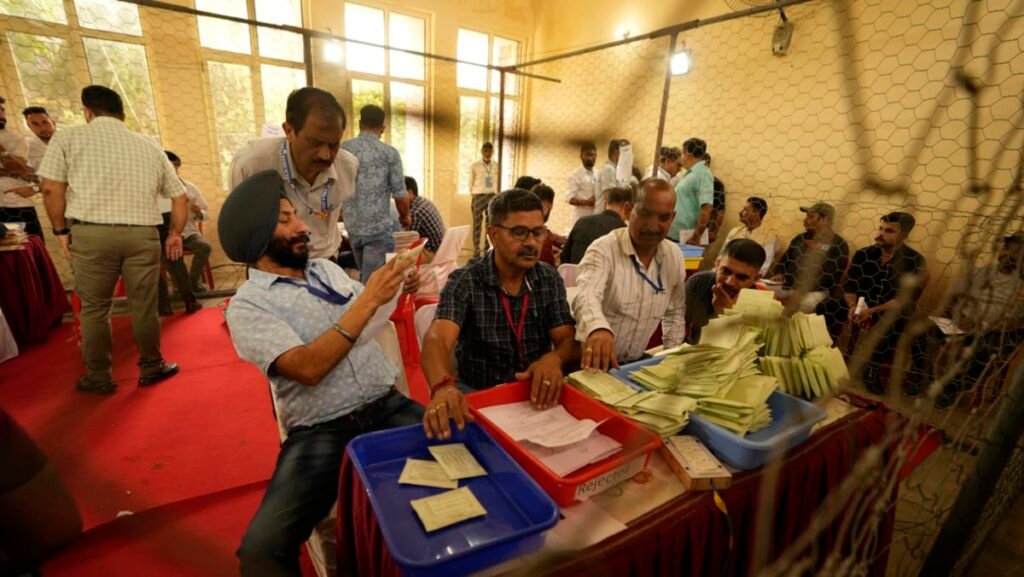Indian Prime Minister Narendra Modi’s Bharatiya Janata Party (BJP) faced setbacks in two provincial elections in the northern state of Haryana and the troubled Himalayan territory of Jammu and Kashmir. The elections were the first test of popularity for Modi since he returned as prime minister for a third consecutive term earlier this year. The BJP’s losses in these elections are not expected to impact the Modi government’s ability to make federal policies, but they could be seen as dampeners for the party ahead of upcoming elections in the politically crucial states of Maharashtra and Jharkhand.
Exit polls had predicted a victory for the main opposition Congress party in Haryana, while Congress and its regional ally National Conference (NC) were expected to have an edge in Jammu and Kashmir. The counting of votes showed BJP leading in 22 seats in Haryana, where it has held power for a decade, while Congress was ahead in 57 seats. In Jammu and Kashmir, BJP was leading in 29 seats, while the Congress-NC alliance was ahead in 44 seats in the first provincial poll there in a decade, following the state’s split into two federally administered territories in 2019.
Both legislatures in Haryana and Jammu and Kashmir have 90 seats each. The upcoming elections in Maharashtra and Jharkhand are crucial, as Maharashtra is currently ruled by a BJP coalition, while an opposition alliance is in power in Jharkhand. Although the dates for these elections have not been announced, they are expected to take place in November. A victory for Congress in Haryana and Jammu and Kashmir would be a significant boost for its leader, Rahul Gandhi, who has faced criticism for the party’s decline since Modi came to power in 2014.
Gandhi was also the face of the opposition alliance that denied Modi an outright majority in the parliamentary election earlier this year and currently serves as the leader of the opposition in the lower house of parliament. The results of the provincial elections in Haryana and Jammu and Kashmir could shape the political landscape in India leading up to the upcoming elections in Maharashtra and Jharkhand. The BJP’s losses in these elections could be seen as a challenge to Modi’s popularity and the party’s ability to maintain power in key states.
Overall, the results of the provincial elections in Haryana and Jammu and Kashmir indicate potential shifts in political power and could impact the dynamics of upcoming elections in Maharashtra and Jharkhand. The outcomes of these elections will have significant implications for the BJP, Congress, and other political parties in India as they navigate the complex landscape of regional politics and national leadership under the Modi government. The electoral landscape in India is evolving, and these provincial elections serve as important indicators of future political trends in the nation.











